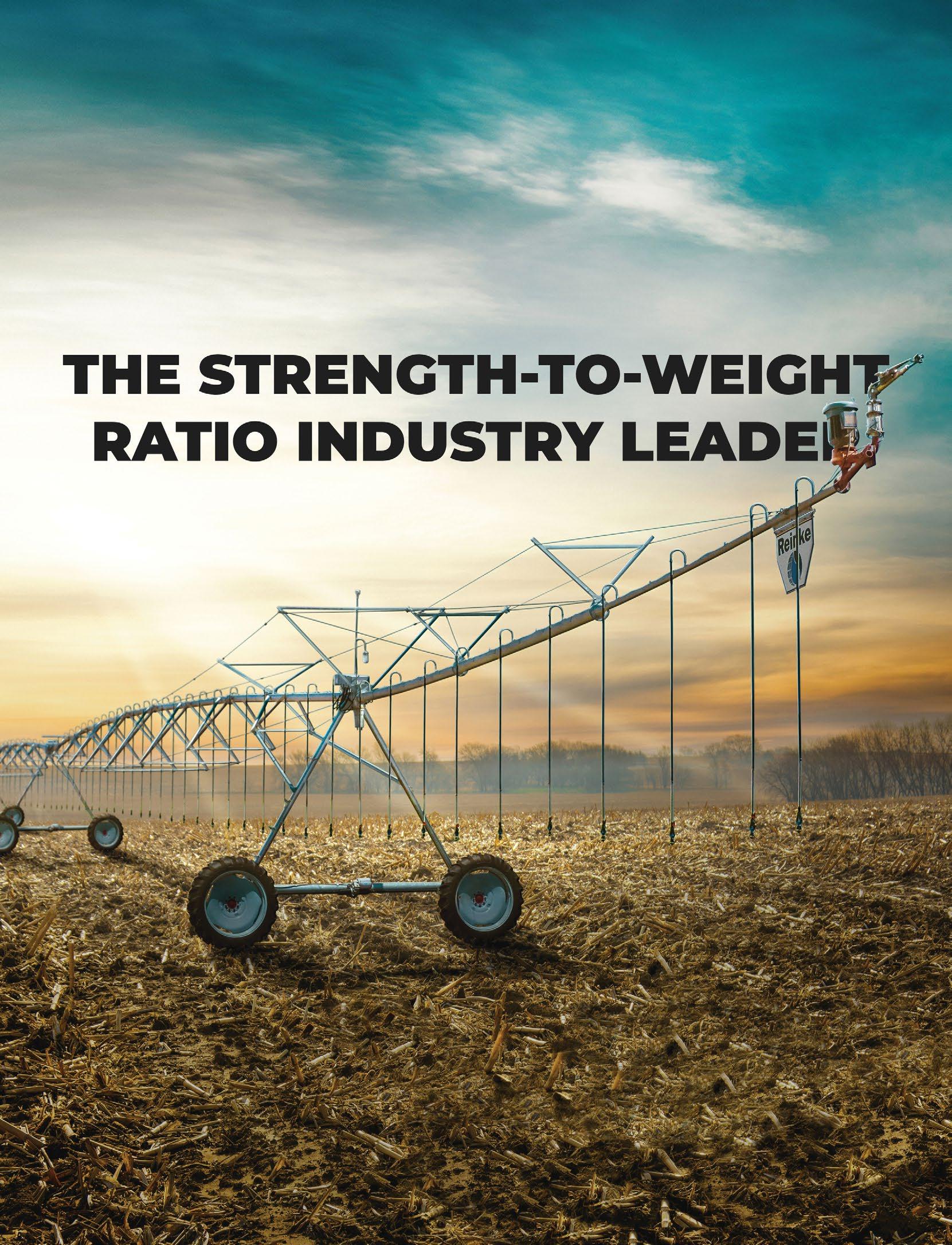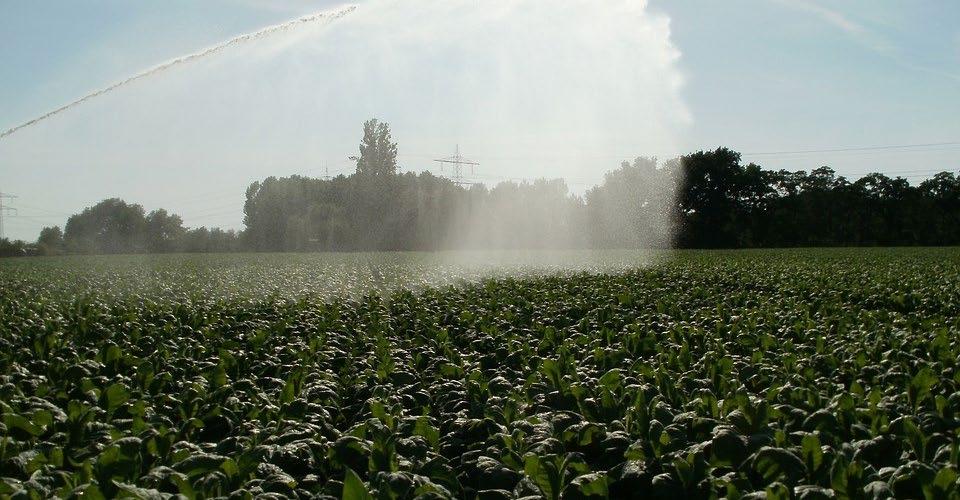
5 minute read
Zimbabwe’s tobacco farming calendar: Here’s what you need to know
from ProAgri BNZ 07
by ProAgri
by Jaco Cilliers
Farming is a seasonal business. The activities of farmers are governed by the weather, seasonal rain, and average day temperatures. But in tobacco farming, legislation also affects the farmer’s activities. According to law, certain tasks have to be completed by certain dates, and failure to do so may be regarded as a criminal activity. Before embarking on tobacco farming, it is essential to register with the Tobacco Industry and Marketing Board of Zimbabwe (TIMB). At the beginning of the year, tobacco farmers should be hard at work ploughing the fields, adding lime and other soil additives to prepare the soil for the planting season. This task should be finished by the end of January. February is normally used to finalise the budget and financing for the coming season. By this time, the farmer would have already submitted the estimated yield that he expects for the season. During March and April, farmers need to check their ploughed fields for weed regrowth. If necessary, they still have time to plough the fields again. By the end of March, the farmers have to submit their second estimate of the tobacco yields for the season. It is crucial that farmers test soil samples during the preparation of their fields to determine the availability of nutrients and to ensure the correct pH levels of the soil. Tobacco is sensitive to pH levels, and the acidity of the soil will also determine how efficiently the plants will be able to extract nutrients from the soil. During May it is time to order fumigants and other pest control products. It is also time to start preparing seedbeds where the tobacco seedlings will be grown before they can be transplanted to the fields. By the 15th of May, all living tobacco plants that might have remained after the previous harvest have to be destroyed according to government regulations. Failure to comply may result in criminal charges against the farmer. The months of June, July and August is the season for sowing tobacco seeds and growing the seedlings. Seedling production is another essential stage in growing a good tobacco yield. Growing strong seedlings will ensure that they survive the transplanting stage of the process, and ultimately result in a good crop. Tobacco seed can be bought from the Tobacco Research Board (TRB) as well as the Zimbabwe Tobacco Seed Association (ZTSA). The choice of cultivar will be greatly influenced by the region where the plants will be grown. Cultivars are adapted to specific climate and soil conditions. The best advice would be to contact the TIMB for guidelines to make sure that you plant the cultivar best suited for your region. The seedlings will need about 12 weeks to develop properly. The earliest date for sowing seeds is the first of June and the earliest possible date for transplanting the seedlings is the first of September. During these 12 weeks there is enough time to ridge the lands and prepare it for the planting season. Irrigating the seedlings, clearing weeds and controlling pests and other plant health issues in the seedling stage will ensure a stronger crop that will limit plant health management while the plants are maturing in the fields.
Advertisement
Tobacco is best cultivated under irrigation, but can also be planted on dry lands. Different cultivars are specifically adapted to suit the farmer’s soil and climate conditions.
Allowing tobacco seedlings to mature for 12 weeks will ensure strong plants when transplanted to the field. The healthier the seedlings are when transplanted, the more you will save on labour and other costs during the growing season.
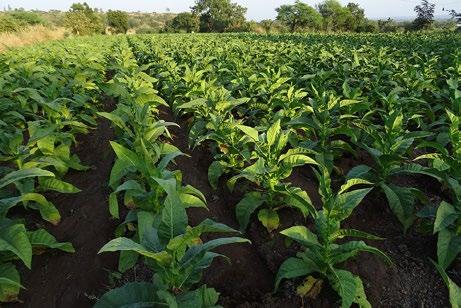
Tobacco farming is a heavily regulated industry. It is essential to register your tobacco farm with the Tobacco Industry and Marketing Board of Zimbabwe to gain access to seed and markets.




One machine - countless materials.
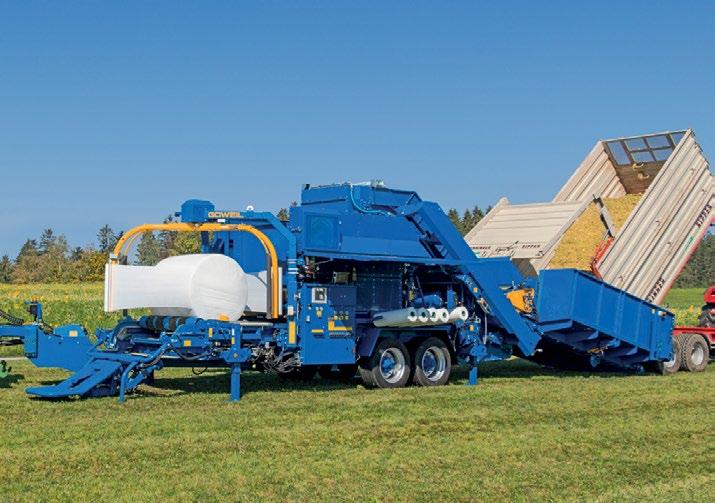
Baler-Wrapper Combination LT-Master & VARIO-Master • Variable Bale Sizes (Diameter: 0,6 m - 1,4 m) • Maximum Bale Density • Many different Materials: Hemp ∙ Corn Silage CCM ∙ Alfalfa ∙ Grass
Sugar Beet Pulp ∙ TMR (Total Mixed Ration) ∙ Whole Crop Silage ∙ And much more Your Contact: Pierre Payré E-Mail: pierre.payre@goeweil.com Tel.: +43 7215 2131 46 www.goeweil.com • Hemp Silage • Corn Silage • ... Best forage quality through bale silage: Increase milk & meat yield
ADVERTISE HERE!

Tiny Smith +27 (0)82 698 3353 tiny@proagri.co.za



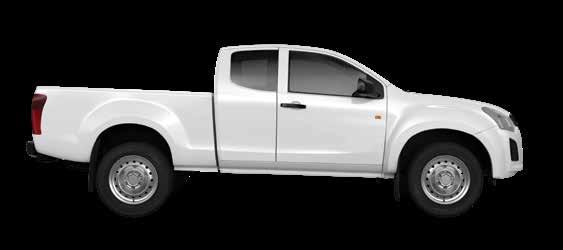

Contact any Isuzu Dealer Partner or call 08000 ISUZU (47898)





ProAgri Botswana / Namibia / Zimbabwe 07 Model/s shown may differ. E&OE. EXTENDED CAB X-RIDER DOUBLE CAB HI-RIDE DOUBLE CAB LE DOUBLE CAB
